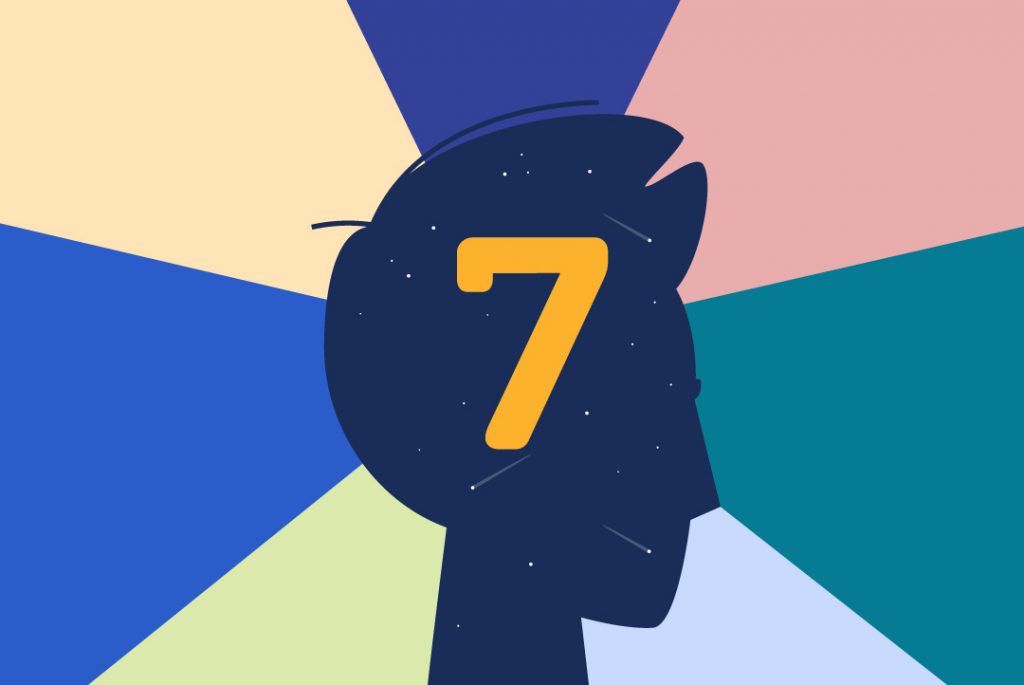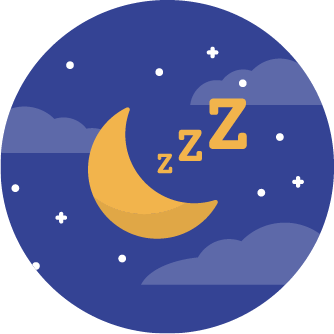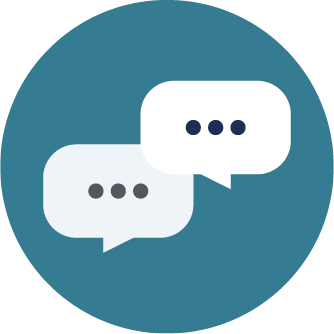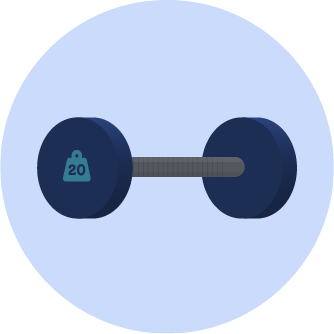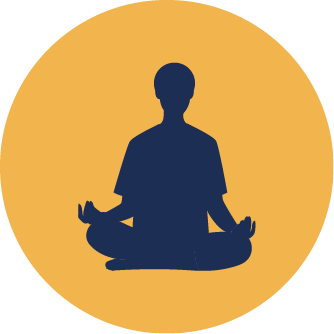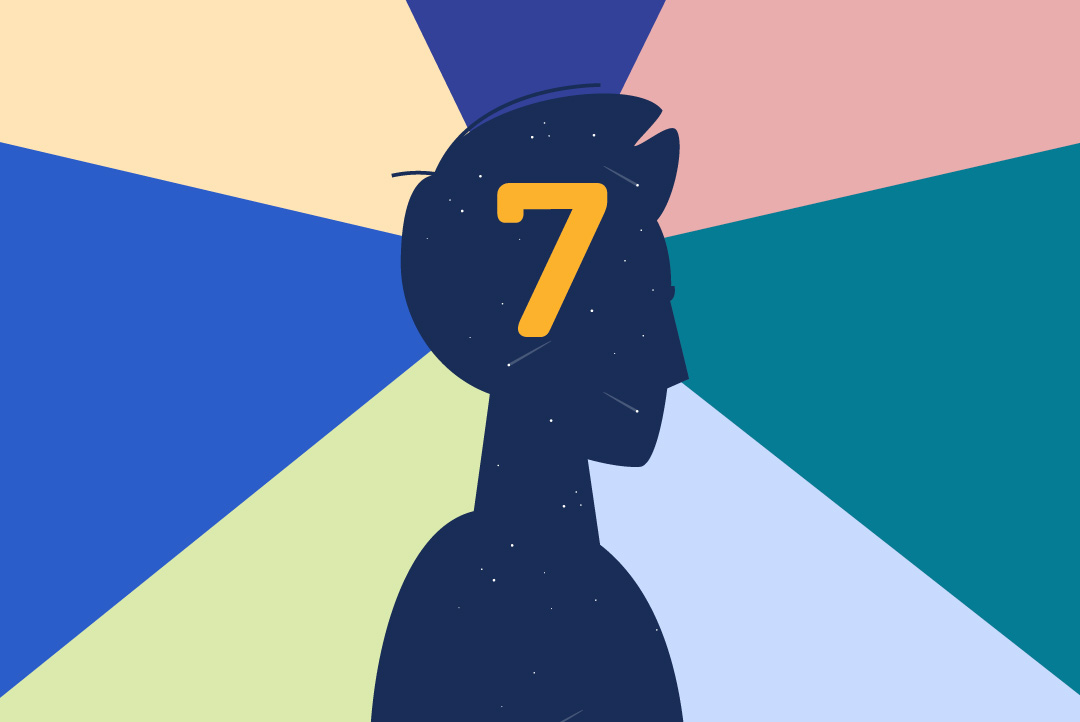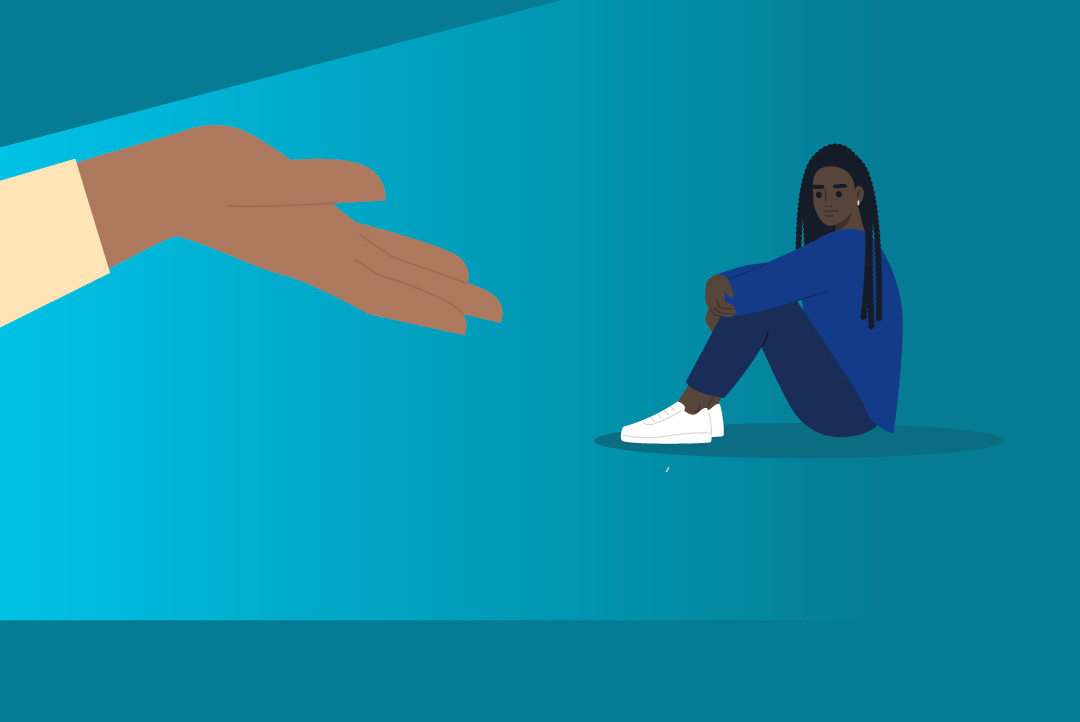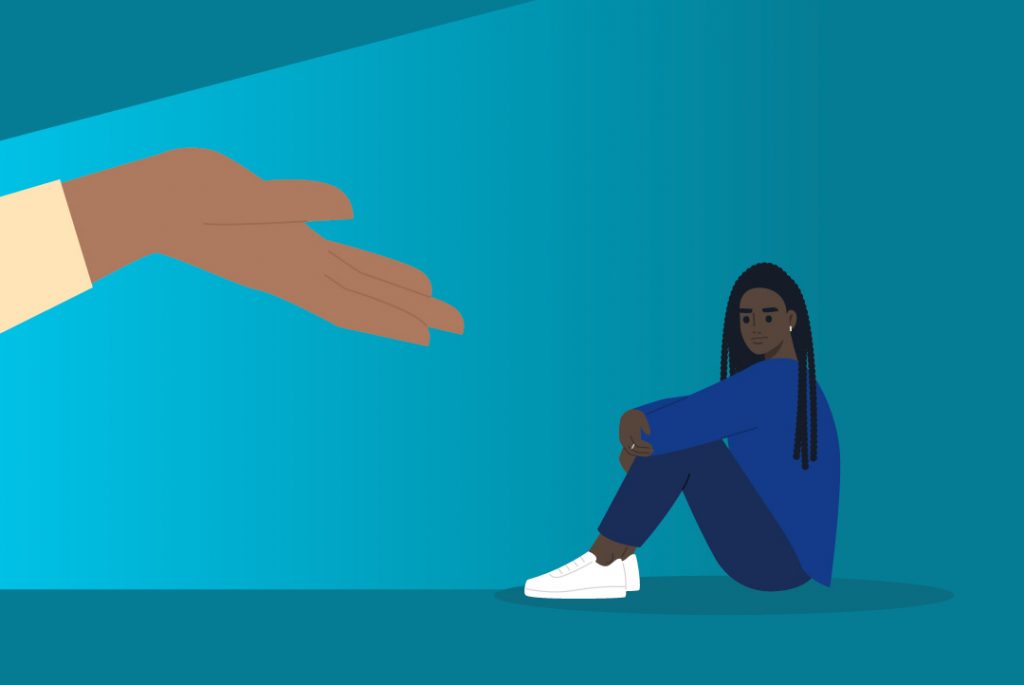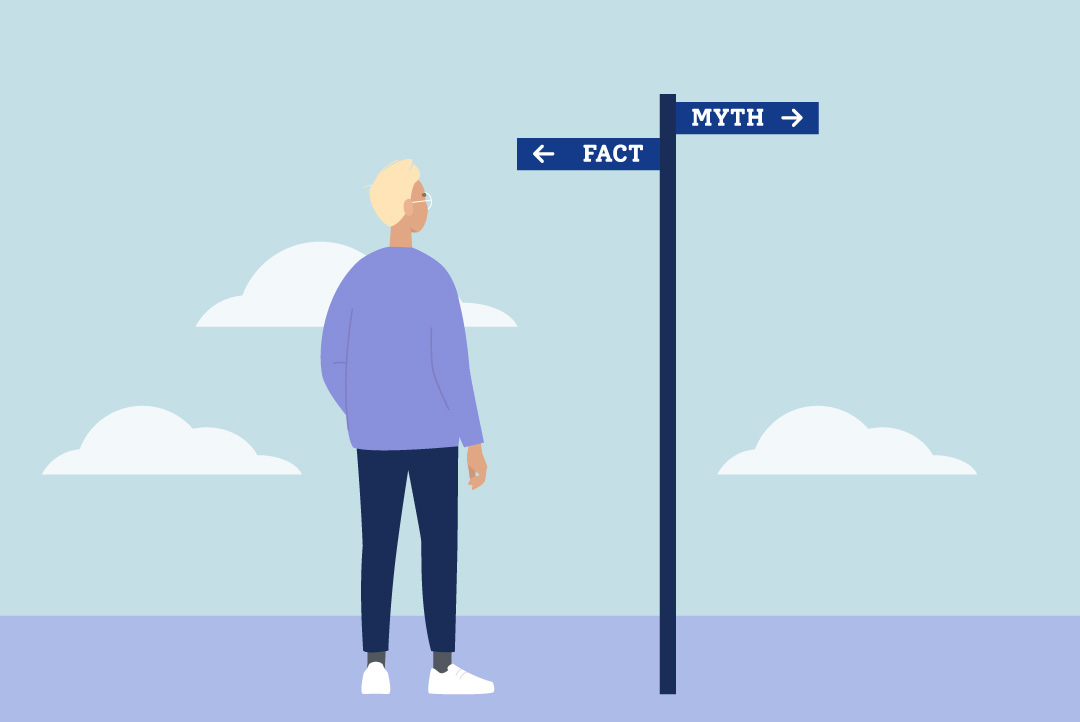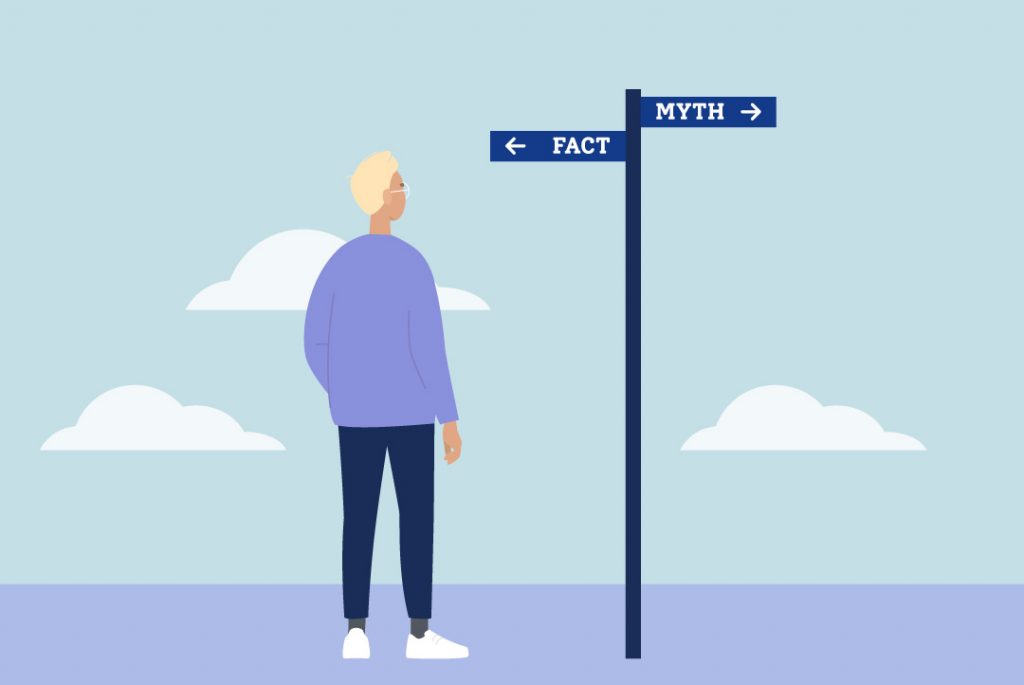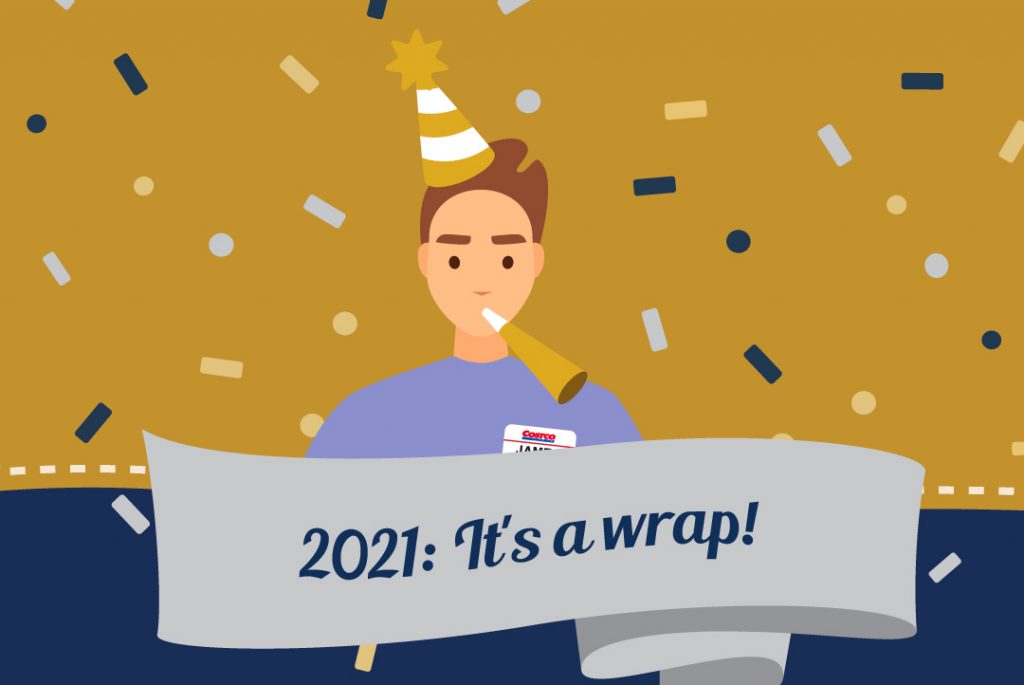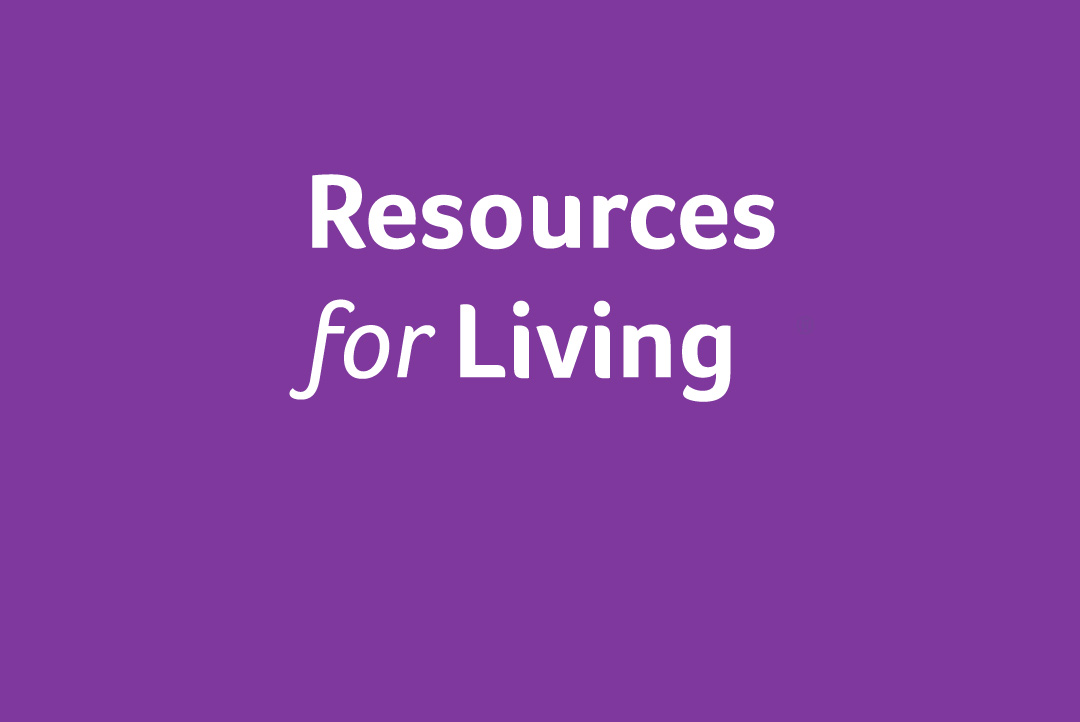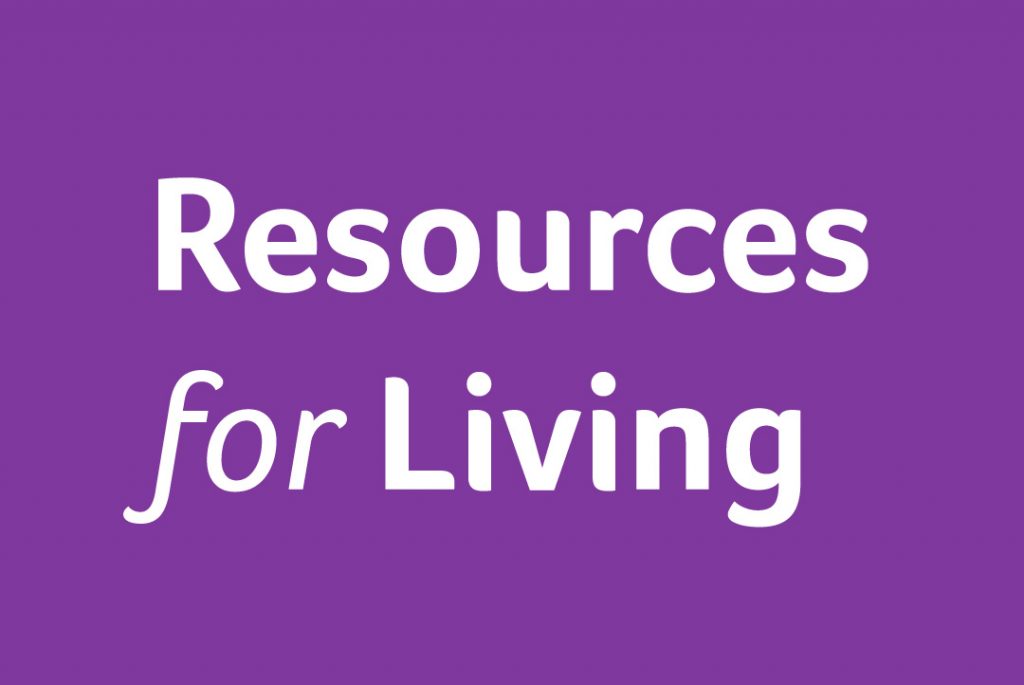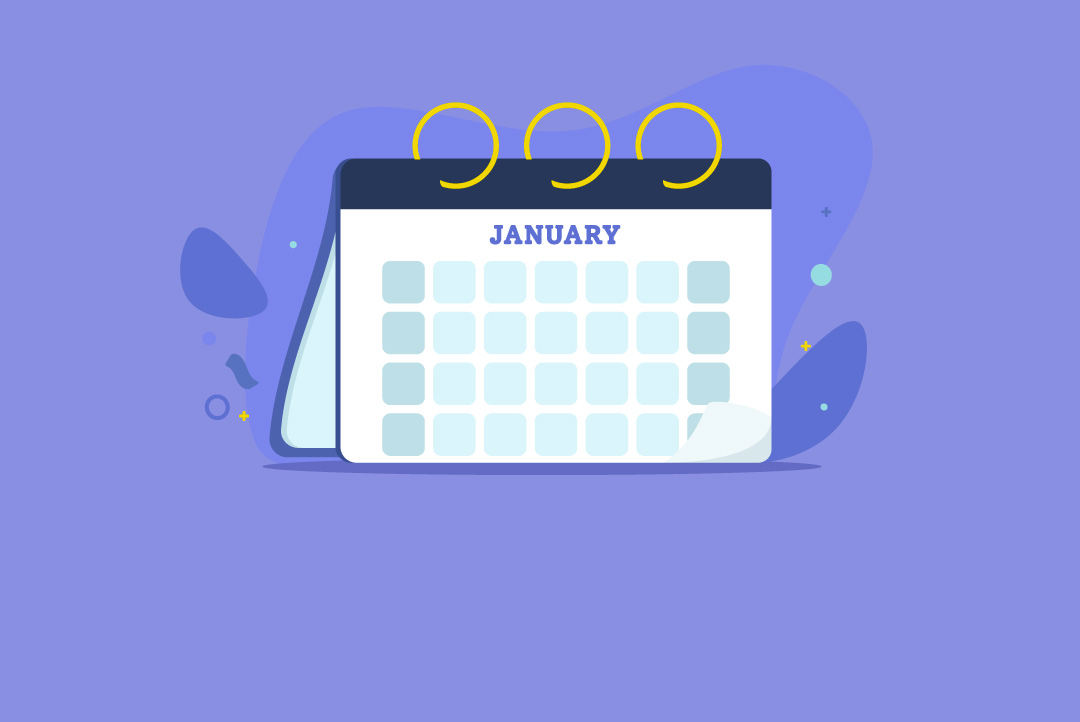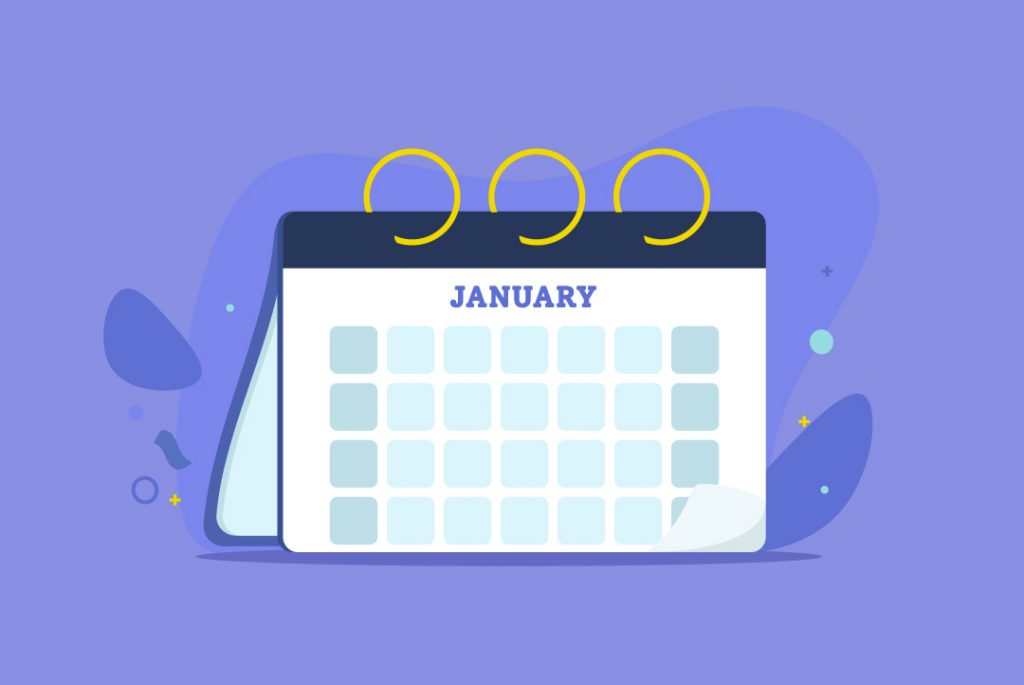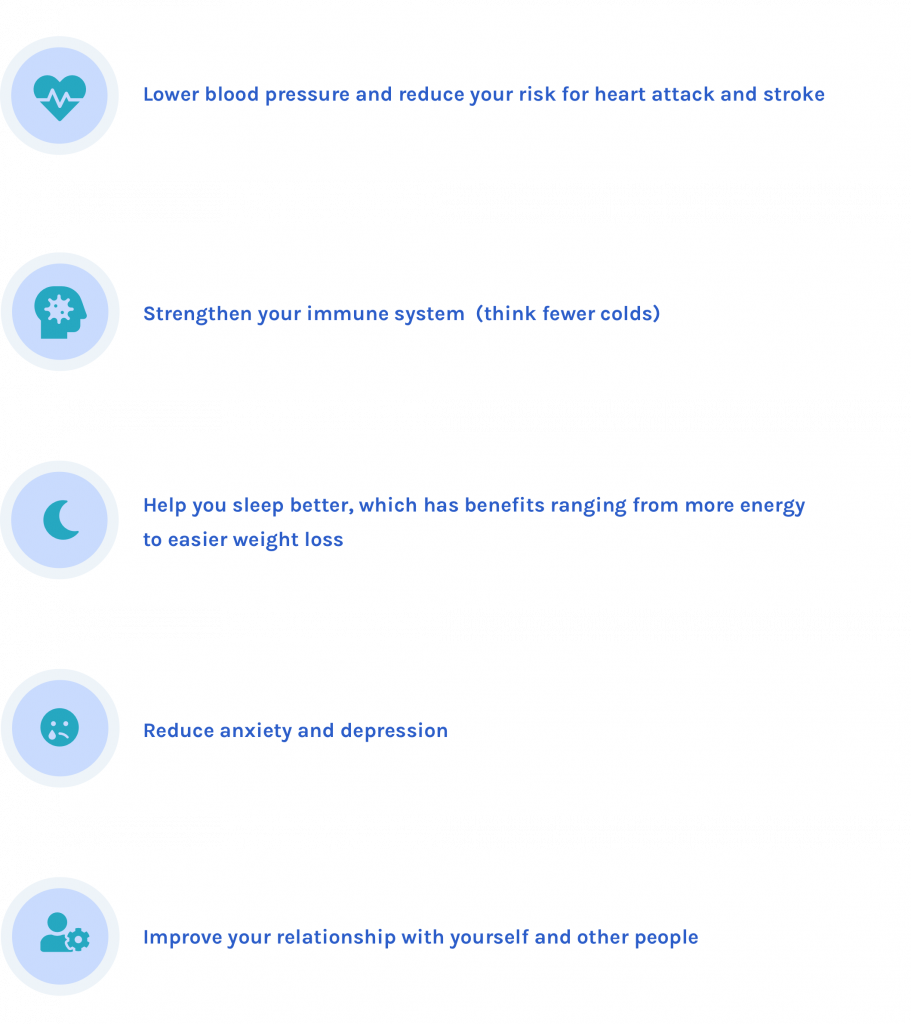Suicide is one of the leading causes of death in the United States. In 2020, it accounted for the loss of 45,979 American lives, nearly double the number of lives lost to homicide. And it was the second leading cause of death for people ages 10–14 and 25–34.
Chances are someone in your family or circle of friends struggles with depression and may be having suicidal thoughts. How can you help? Start by listening to this thirty-minute podcast. You’ll discover how to recognize the signs of depression and help someone who’s considering suicide get the care they need. Don’t have time for the podcast? Learn the signs of suicide risk.
Think Tank: How to talk to someone who is depressed or having thoughts of suicide
Speakers: Erica Hanlon, Clinical Counselor & Life Coach
Aimee Prange, LCSW & Crisis Support Volunteer
Erica Hanlon: Hi, everyone. You are listening to The Think Tank Podcast. This month, September, is National Suicide Prevention Awareness Month, and suicide is a widespread issue. A lot of people don’t know that. And right now, especially in the middle of a pandemic, we’re seeing increased rates of suicidal thinking, suicide attempts. In fact, recent numbers from the CDC show that 11% of adults actually thought about suicide in the month of June. So, today’s podcast is all about what you can do if you’re concerned somebody is depressed or thinking about suicide. My name is Erica Hanlon. I’m a licensed professional counselor and life coach. And today I am joined by Aimee Prange who is also a licensed clinician and really spends a lot of time working in the suicide prevention space. So welcome, Aimee.
Aimee Prange: Hi Erica. So nice to join you today.
Erica Hanlon: So, Aimee, why don’t you just tell us a little bit about yourself?
Aimee Prange: Sure. I’m a licensed clinical social worker. I’ve been in the field for a little over 20 years and I’ve tried to work and hone my expertise around suicide prevention and intervention. I’m very active with the American Foundation for Suicide Prevention in my local chapter, in addition to volunteering as a crisis counselor.
Erica Hanlon: Great. So why do you think that talking about suicide and how to talk to somebody if you’re concerned that they’re depressed or maybe thinking about suicide is such an important topic for discussion?
Aimee Prange: It’s such an important topic, not only during September during Suicide Prevention and Awareness Month, but it really should be something that we learn to normalize to a degree so that people who are struggling can reach out when they need help. And especially with the pandemic that we’re currently experiencing, mental health issues are certainly on the rise as you noted earlier. And being able to have a comfort level and decrease stigma around mental health topics, as well as just allowing people to feel safe enough to reach out if they are struggling or on the flip side, if you notice that somebody is struggling, to have an honest conversation with someone and show that care and concern, we can prevent the potential for someone ever reaching that point of becoming suicidal.
Erica Hanlon: Yeah. So just by having those conversations, you could make a huge difference in somebody’s mental health and maybe even save their lives.
Aimee Prange: It’s so critical.
Erica Hanlon: So, I know that you and I, we’re both licensed clinicians. We’ve had training in this area. We think about it all the time. We talk about it all the time, but that’s not true for most people. What do you think are maybe some of the biggest misconceptions or myths and misunderstandings around mental health issues?
Aimee Prange: Gosh, where to begin? There are quite a few, but I think one of the biggest misconceptions is that if you’re concerned about someone being suicidal, if you ask them about it, you’re now going to push them forward into acting on it. And that’s just simply not true. In fact, what the research shows us is that by asking somebody very openly and honestly if they are thinking about suicide, it decreases the likelihood that they would ever act on it. First of all, we’re not planting a seed for them. We’re not telling someone. But it’s like a weight that we’re lifting off of somebody’s shoulder. We’re giving them that opportunity to have a sigh of relief and say, “Yes, thank you for noticing. Thank you for caring enough to ask.” And we’re opening the door for a conversation and potentially connecting them to the help that they might need. And I think just in general, there’s just a lot of misconceptions that somehow there’s this ideal image or picture of what a suicidal person looks like or what mental health issues look like. And as a person who has my own lived experience and people often say to me, “Well, you don’t look like you’re depressed,” or, “You don’t look like you ever would have been someone who was suicidal.” I don’t know how to respond to that. What does that look like? I’m a normal person like anyone else, but I also struggle. And so you can’t just assume that it looks a certain way. We’ve got to be able to just be real with people and not feel like you have to live behind some kind of mask or image or pretend to be something. That’s a big misconception.
Erica Hanlon: I heard an interview with, I think her name is Allie Brosh or Broshe. And she used to have a very popular blog, Hyperbole and a Half. I think it, she ended up publishing a book and I was listening to an interview that was being done with her. And she was talking about her own experiences with clinical depression and suicidal thoughts, and that she had actually started to put a plan together. And her mother asked her if she was thinking about suicide. And in this interview, she talks about what a huge relief that was because while she really wanted to reach out and ask for help and talk to her loved ones about how much she was struggling, she didn’t want to be burdensome. She didn’t want to burden them with all of her mental health issues. So, she talked about how important that was when her mom came right out and had that difficult conversation with her and asked her just straight out if she was thinking about suicide.
Aimee Prange: That’s a huge one about individuals feeling like they are a burden to others and that they don’t want to trouble anyone. They don’t want to weigh anybody down. But the reality is, is that we’re making these assumptions and assuming nobody wants to help. And I hear this on the crisis line that I volunteer for all the time, that I’m not going to, I don’t want to bother people. They have enough going on. But guess what? Give those folks a chance to decide for themselves. People want to help. It’s not a bother. It is not a burden and an individual’s life has so much value and worth, it’s never a bother. So, we need to remind people not to make that choice or decision on behalf of someone. Give them a chance to decide for themselves and more often than not, they’re going to want to help.
Erica Hanlon: Yeah. Yeah. And we know that a lot of times, the way we talk about mental health issues makes a big difference in the level of stigma and that when you’re able to reduce mental health stigma, people are more likely to ask for help and reach out for help. And I know that a lot of the language around suicide has started to change in the last few years. And people might not be aware of that. Can you speak a little bit to some of those changes in the language and what has really been the driving force behind some of those changes?
Aimee Prange: I’m so glad you mentioned that because the language that we use when we talk about, not only mental health issues, but also talk about suicide makes such a difference in not only the culture and reducing stigma, but also allowing people to feel like it’s safe to talk about it. And so, where a lot of the change comes in for both mental illness, as well as suicide is putting an individual first, valuing the fact that no one is defined by their illness. No one is defined by even the way that they have died. So, whether we’re talking about someone who has an illness, they’re a person who lives with that particular illness. Or if we’re talking about a person who has lost their life, they’re a person who lost their life to suicide, died by suicide, as opposed to using very stigmatizing language like committed suicide. We’ve heard that. It’s been ingrained in our culture for years and years. And now the shift is that, A, it’s not a criminal act. This is a person who is in extreme pain and anguish who was unable to go on any longer. And we don’t want to reduce somebody’s life down to those final moments. We want to remember them as a person. And so, it’s also helpful because when we think about the survivors, the family members, the friends that are still here, who are still living, they’re at very high risk for potential of suicide. And if we perpetuate that stigma and that negativity, it’s not helpful. But if we can value the life of their loved one, we can also potentially lower their risk and give them the greater likelihood that they’ll reach out for help. We would never want to use language like a failed suicide attempt because what’s the message, right? We’re saying that when you fail something, you should try again, and we certainly would never want to convey that message or that somebody successfully completed suicide. Well, I think of success as something you should celebrate. And if we’ve lost somebody to pain and anguish, that’s nothing to celebrate. So, we want to just be very mindful and cautious about our language and just really value the life of others. And just kind of think about not sharing and reducing someone down to the method or the means by which they died. And instead let’s celebrate the full life that they lived.
Erica Hanlon: Yeah. I remember I was really, I was sort of confused about that departure from the term committed suicide for a while, until finally it was explained about, we use that term committed when we talk about somebody committing a crime. And finally, that clicked for me that that is why we don’t use the term commit.
Aimee Prange: Most definitely. Yeah. We want to take that negative thought process away when we talk about it, for sure.
Erica Hanlon: So, what signs should someone look out for to know that there’s a potential mental health issue? Like you touched on before, we sort of sometimes have a narrow view of what a depression looks like or what a mental health issue looks like. So, what should people be paying attention to?
Aimee Prange: There are certainly classic signs that a lot of the literature talks about in terms of looking for changes in somebody’s mood, looking for risk-taking behaviors. And I can come back to some of those in a moment. But I think the biggest thing that I would say is that look for any drastic changes in somebody’s personality, the things they say, the things they do, their mood, their behavior, that’s out of character for how they typically seem. So, it’s not about checking boxes and saying, “Oh, somebody seems sad today. I wonder if they’re at risk or they must be depressed,” but it’s a culmination of factors. And there’s a lot of things that go into it. It’s never just one reason that leads someone to become suicidal. So, thinking about, do you see someone’s mood change drastically either on one end of the scale or the other? Perhaps it’s someone who has been depressed for a very long time and suddenly now they seem resolved, more at peace. That would be a big warning sign, but again, it’s not the be all and end all. It’s easy to think that “Wow, oh, this person’s been sad for so long and they suddenly seem better and that’s a great sign.” And we would want to feel good that they’ve improved, but it may be a warning that this is an individual who’s made peace with the fact that they can’t continue the way they’ve been living. They have that resolve in terms of, “I’ve got a plan. I’m okay with this decision, I’m ready to say goodbye.” And so, they can let that weight of the pain that they’ve had go because they know that things are coming to an end. But again, we can’t look at that in isolation. We want to look at that along with other factors. Is this somebody who started to come around and say goodbye to people? You haven’t seen them in forever and suddenly now they’ve come around to have a visit. Are they giving away things that seemed very valuable or personal to them almost in a way of making sure that their possessions had a good home, and it wouldn’t just sort of be tossed aside, especially when it comes to even pets and living things and really beloved possessions. We might also look at individuals who start putting their affairs in order, making sure the bills are paid, that there may be even a will and legal documents in order. And we may not be privy to all of these factors, but these are things to look at. Are there any signs or warning that someone’s maybe even done research or looking to collect the means in which they may use to take their life? So, there’s a lot of different pieces that we just have to kind of look at it as a big picture and not any one thing in isolation. On the flip side, it may be, is this person starting to distance themselves from friends, family, loved ones? Are they avoiding family gatherings, social gatherings and things that maybe they typically would have attended, even if they didn’t have a great time. And now they’re just not coming at all as a way to slowly fade into the background. These are all things that we want to notice, and it’s not waiting for a collection of items. It’s more of have a conversation, let someone know what you’ve noticed and find out what the real story is. People really appreciate when we reach out and let them know that we care, we’re worried, we’re concerned. And maybe there’s something we really should be worried about. And maybe there isn’t. Let’s talk about it and keep it on the table and continue to watch. Are there other signs that follow?
Erica Hanlon: I know some people are really nervous about starting those conversations. Sometimes they’re worried that if they ask about how somebody is doing and their mental health, that they might make the person angry. And I mean, honestly, sometimes those conversations might feel a little awkward. So how do you suggest a person maybe bring up their concerns?
Aimee Prange: It is, for sure, the scariest conversation anyone could have. And I don’t know that it ever gets comfortable even as a professional. I have these conversations more than I would like. It’s not comfortable, but it’s necessary. In preparation to ask somebody whether or not they might be thinking about suicide is to muster all the confidence you can. And sometimes like they say, fake it till you make it. Put on a good face, look confident, even though inside you’re dreading that conversation with all that you have. And ask someone very directly, are you thinking about suicide? Are you thinking of taking your life? Don’t dance around this topic because you want an honest answer. And if you demonstrate to someone that you’re really uneasy with this, or you don’t really want to hear the real answer, they will edit their response to protect you. You don’t want to be protected. We want to know the real answer so we can take steps forward if in fact the answer is yes.
Erica Hanlon: I think that asking directly piece is so, so important. I can think of a story that a friend of mine saw somebody posted kind of this very vague, but kind of morbid sounding post on social media. And so, my friend was concerned that this other woman was thinking about suicide. So, I think she sent her a direct message, but she didn’t ask, are you thinking of killing yourself or are you having suicidal thoughts? She said, “Are you feeling safe?” And the woman said no, because there was something going on in the neighborhood and so she was feeling threatened by others, but it wasn’t a suicidal thing. And it created confusion in the conversation that my friend didn’t ask directly about suicide, that instead she tried to dance around it by asking, are you feeling safe?
Aimee Prange: Yeah. We have to be direct because there’s a lot of room for misinterpretation. I, myself, have made that mistake of asking somebody who I was concerned about whether or not they had thoughts of hurting themself. And the answer was no. And as the conversation continued, I was like, I don’t know, something doesn’t feel right. And so, I changed gears and I asked more directly. And in fact, the answer was yes, but their original interpretation of my first question was about self-harm, non-suicidal self-injury like cutting or burning. And that was not what they were thinking about. And so, I could have missed a huge opportunity there by asking not quite the right question and I got close, but we have to be very direct even though it’s uncomfortable.
Erica Hanlon: Mm-hmm (affirmative). So, let’s say you start the conversation. You ask the question very directly. And the person says, yes, they’re thinking about suicide. What next?
Aimee Prange: So, you take a deep breath and you let that person know that, validate the fact that they shared with you, acknowledge how hard it must’ve been to even share because it probably was very hard. And let them know that you’re going to stay with them and come up with a plan together. I think, as humans, we want to jump into lifesaver superhero mode and start to just take action and make all the decisions. And while that’s a great intention, it’s more helpful if we can come up with a plan together with that individual. They’re perfectly capable of taking an active role in what happens next. So, ask them, “All right, this is very serious. What would be helpful? We have a couple of options.” And almost like a menu, give them a menu of options. Look, we could call a crisis line. I could take you to a hospital right now. Is there somebody we can call for you? We could call a mobile crisis so that and there’s a variety of different options, but letting them pick. And if it comes down to someone saying, “You know what? I don’t like any of those choices. I don’t want to do that.” Then without threatening, again, remaining calm and just very matter of fact, “If you can’t pick, then I’ll have to decide, but I’d rather we do this together.” So, it’s about bringing somebody in. They’re more likely to cooperate and come up with a plan with you versus you just deciding on their behalf because that’s very threatening and we tend to resist when people make decisions on our behalf. So, pull them in and just let them know that you can’t leave them alone until we know that they can be safe.
Erica Hanlon: And we know that there can be a wide range of what people are thinking about and what their risk is of suicide. You might have somebody who is kind of having thoughts about maybe just wanting to die, but they would maybe something to happen to them. And somebody who’s just having some suicidal thoughts versus, on the other end of the spectrum, maybe somebody who is an eminent risk. So how can you kind of respond appropriately or even figure out maybe where somebody is on that spectrum?
Aimee Prange: Yeah. I should be clear in saying that just because somebody is thinking about suicide does not mean that they’re ready to act on it. There are many people and there’s a lot of ambivalence that goes into that. And so, before we even start with that menu of options, we may want to ask a couple of clarifying questions, just continue the conversation. Right. So maybe even asking about, “So I’m so glad that you shared you’ve had these thoughts,” the next kind of, if you think about it almost as a step ladder, the next question we would want to consider asking is, “Have you thought about how you would do this?” And it’s not so much that they need to tell you what their plan is, but we need to know, do you have a plan? Because a person who has a plan is at higher risk than someone who has never even given that a second of thought. They know that they wish they weren’t here, but they would never act on it. Now, if they do have a plan, now we have to kind of step up the ladder a little bit and think about, do you have what you would need to carry out your plan? Here again, just because you’ve thought out a plan, if you don’t have any way to act on it, that will change your level of risk. And then finally, if someone has a plan, they have everything they need to carry it out, now we need to ask, have you thought about when? Do you have a timeframe in mind? Because that person who’s thinking about, yeah, it’s going to happen before the day is out or in the next 24 to 48 hours, as you mentioned, that’s imminent risk. That’s someone who needs emergency attention versus everyone who thinks about it, we’d like to get help. And we’d like to see some intervention, but in terms of how quickly we have to act is going to vary. And there is kind of a wide range of, “Hey, this is really serious. Let’s work together and see what you might be interested in to help you alleviate those thoughts,” versus, “What do we have to do to keep you safe right now?” So, there’s a lot to that kind of goes into that and not being afraid to reach out to a professional for guidance. You don’t have to have all the answers. You don’t have to do this all on your own. The fact that you’re having this conversation with someone will, again, make all the difference and you can be that bridge to teasing out, what do we need to do next?
Erica Hanlon: And I know some people might say that these conversations should just be left to therapists and trained professionals altogether. What are your thoughts about that?
Aimee Prange: Without having sort of our community, when they say having a village of people around you, we need eyes. There are not professionals at every turn of the corner. So, without having good, genuine caring individuals who are concerned, whether it’s someone that you know and care about, or it’s a stranger on the street who seems to be suffering. Without those extra eyes and support, we’re going to miss a lot of big opportunities. So, we don’t need people to act as the professional and to solve all the problems. But we do need people who are willing to reach out and notice and make that connection and help guide somebody to think about getting some help if in fact, that’s what they want and makes most sense for them because it’s not a one size fits all.
Erica Hanlon: Mm-hmm (affirmative). So, when you are wanting to connect somebody to help, where should people go? What are really those best resources for them?
Aimee Prange: There’s certainly a lot of great resources. First place I would probably start is considering utilizing your EAP resources, your behavioral health benefits, calling your insurance carrier, say, “Who’s in my network?” If it’s imminent risk, when in doubt, always call 911. Ask for a responder who has mental health training and support. Go to your local emergency room. Contact your primary care physician. That may be a person you have comfort and a rapport with. So, there are a lot of starting points and entry points to get you connected to the right person. But make that outreach. Call a crisis line. They can also provide resources to you. So, there’s always something right at an arm’s reach away.
Erica Hanlon: And I know that the National Suicide Prevention Lifeline is open 24 hours a day, seven days a week, all year long. And that number is 1- 800-273-8255. And so that can be a really great resource. And then if people really want to learn more about suicide and what they can do to help prevent suicide, the American Foundation for Suicide Prevention is really the best resource, don’t you think?
Aimee Prange: Absolutely. They have local chapters across the country, training programs, education programs, resources, not only for prevention, but also in the event of a loss by suicide, they can connect people to support groups while they don’t do them themselves. There’s just a wealth of literature. They do have all of the latest research. And so that would definitely be as a starting point for that, for sure.
Erica Hanlon: And that website is AFSP.org if people want to go and check it out. So, I think that we have covered this pretty thoroughly. I mean, suicide and mental health awareness and reducing stigma and how to seek help and how to have these conversations. I mean, you and I could probably talk for hours about this if not days, but do you have any final thoughts about this topic that you think it’s really important for people to walk away with?
Aimee Prange: Yeah. I certainly could talk about this for days and I’m sure you could tell the passion that I have, but people have heard this before, but I think it could be said a million more times, that it’s okay to not be okay and it’s okay to accept help and reach out for help. And if you notice something and notice that somebody is struggling, someone may not be able to reach out. So be the one, be the one to ask if someone else is okay and what you can do to support them because we all, we need each other.
Erica Hanlon: Mm-hmm (affirmative). Great. Thank you so much, Aimee, for joining us today for this podcast. I am sure that people will walk away from this really having learned a lot and will hopefully feel more equipped to have these really kind of awkward and difficult conversations. But those are conversations that are so, so important to have. So, thanks everybody for listening to the podcast today on this really important topic and be sure to tune in next month when we talk about bridging the generation gaps. Bye.
Resources For Living The EAP is administered by Resources For Living, LLC. This material is for informational purposes only. Information is not a substitute for professional health care and is not meant to replace the advice of health care professionals. Contact a health care professional with any questions or concerns about specific health care needs.
©2020 Resources For Living | 44.27.416.1 (9/20)
If you or someone close to you is struggling with depression or suicidal thoughts, remember the following resources are available to help you find care and treatment. These resources are confidential and available to you at no extra cost.
